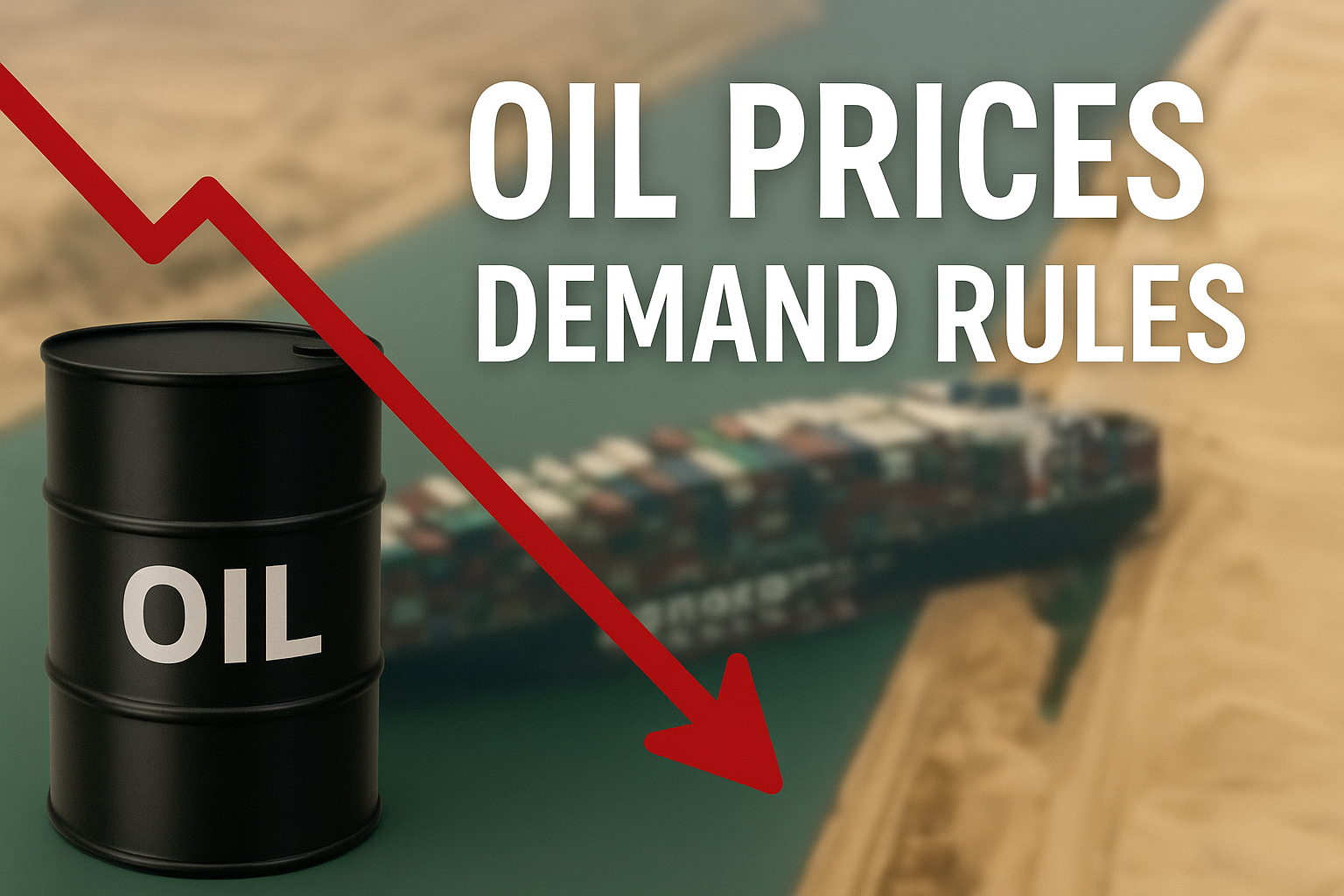Announcement: Lorem ipsum dolor sit amet, consectetur adipiscing elit. Donec et quam blandit odio sodales pharetra.
For oil prices, it may once again revert to the demand story
The recent volatility in oil prices and the sustained fall despite the Suez Canal block proves one thing. When it comes to oil, nothing spooks oil prices as much as the fear of oil demand tapering.

Table of Content
Suez Canal – Not again
When we hear about Suez Canal block, our mind obviously darts back to the big events like Egypt nationalizing the Suez Canal in 1956 or the blockade of the Suez Canal in 1967. The 2021 block is nothing of that kind. The block of the canal has been purely caused by one large oil container running aground in the Suez Canal and that has disrupted oil movements sharply. However, Suez Canal route is now much smaller as it essentially carries Middle East oil to the European nations. The biggest Middle East consignments are headed to Asia and that does not require the use of the Suez Canal. Hence it has less criticality. Today, a much smaller part of the oil moves through the Suez Canal. Most of American oil tends to take the Pacific route. Back in the sixties, when the Suez Canal was shut for 8 years, there was a big shift to the use of large containers which could be economically moved around the Cape of Good Hope. That is the situation that continues till date. That is one of the reasons that despite the Suez Canal being blocked for nearly a week, the impact on oil prices was limited. On the contrary, oil prices have actually corrected by 12% from peaks.
COVID rebound and oil demand?
In the midst of all this confusion over the Suez Canal, the one visible trend was that the resurgence of COVID in Europe and parts of Asia, appears to have seriously dented projections of oil demand. That is what led to the 12% fall in Brent Crude prices after touching a high of $70/bbl. When the oil rally began in November 2020, the hope was that the vaccination drive would lead to a surge in oil demand and Biden’s anti-fracking policy would constrain supply. Even as OPEC and Russia have cut supplies aggressively, demand failed to keep pace leading to oil prices falling.
Oil is now a buyer’s market
What we must not miss out is that for the first time, oil is a buyer’s market. India is able to cut down Saudi supplies if it is unhappy with the price because it has got the US alternative. Saudi Arabia is going out of its way to pamper China but every country knows that even with their best efforts, fossil fuel demand will only wane in the coming years. That is why, countries like the US are keen to sell as much oil as possible and OPEC and Russia would soon come around to that point of view. Forget about Iran conflicts and Suez block. The only thing that will matter to oil in the coming years is whether demand is robust or not. After almost a century, oil has finally become a buyer’s market. That is good news for net oil importers!
Comments